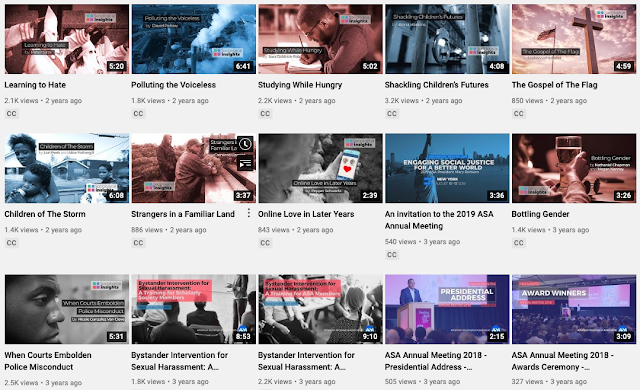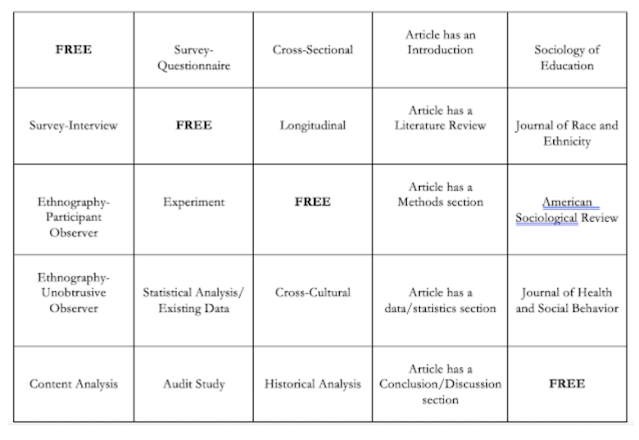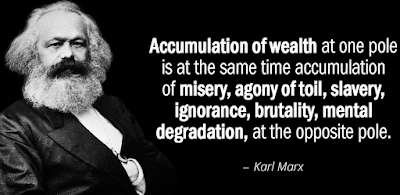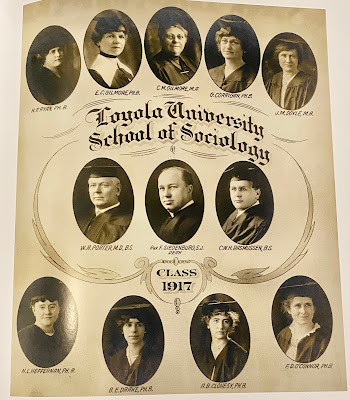As we wait for class to start, be sure you have an original research article ready to dissect. If you are not sure of your article, feel free to call me over to look at it. Try to label the different sections of your article:
Also - please look over the reading, Gang Leader for a Day Introduction and be ready to discuss it.
HW: Read Joel Charon's Should We Generalize?
Venkatesh's Gang Leader for a Day
Thoughts on the reading?
 |
| Here is a view of the complex of Robert Taylor Homes, a CHA project that used to be near U of Chicago. It was 28 buildings along a two-mile stretch designed for 11,000 people but peaked at 27,000 residents, of which 95% were unemployed and 96% were black. |
Today's lesson will focus on how sociologists actually do the work that they publish about. Venkatesh highlights a number of different ways that sociologists examine society. We will use his introduction to dive into how sociologists do research.
- Qualitative or Quantitative - qualitative is subjective and descriptive; it examines the qualities about a subject. Quantitative is objective and involves examining numbers or statistics.
Quantitative Qualitative
statistical analysis comparable descriptive analysis
value free values are present and explicit
less context contextual/nuanced
many cases/subjects fewer cases/subjects
researcher is detached researcher is involved
research is pointed research is open-ended
- Longitudinal - a study that examines subjects over an extended period time. For example, a researcher might interview kids at age 5, then at age 15 and then again at 25. Some research is conducted over the course of decades by different researchers.
- Cross-sectional - a study that examines a group of people at a single point in time. For example, like taking a section of cake that has different layers, a researcher might take a sample of people from a group like SHS. The research might examine 10 students from each grade to get an understanding of the school as a whole. The key here is that the researcher studies a bunch of people from the same group/society.
- Cross-cultural - a study that compares subjects from two or more cultures. The key here is that a cross-cultural study examines people that are part of different groups/societies and compares them.
3. Is Venkatesh's research better considered longitudinal or cross-sectional? Why?
Field work/ethnography - observing subjects by living with them, watching them and taking notes, such as Nicole Gonzalez Van Cleve's research about the Cook County Courthouse System.
Historical analysis - examining changes over time in comparison to present day.
Content Analysis - examining the content of media or other cultural productions
Here is an example of content analysis about climate change.
Survey - interviews that are open-ended questions.
Survey - questionnaires that are close-ended such as multiple choice or likert scale.
Experiment/Audit study - comparing the responses of two or more different reactions.
Statistical analysis - existing sources (data sets, such as GSS or Census data) There are many data sets available to sociologists and other researchers. This type of research involves examining the data in new ways. Here is a list of data sets that are often used by sociologists:
Jacob Farber from NYU explains his research based on existing data here in his study titled "Complaining while Black".
For more info on Venkatesh's work:
- Gang Leader for a Day on Amazon.
- Read an excerpt from the book and download Venkatesh reading and talking about his book from NPR.
- Venkatesh speaking on the Colbert Report and he explains that there are important ways of doing research correctly.
- Venkatesh speaking about his book and the research he did.
- An interview at slate.com between Venkatesh and Alex Kotlowitz (There Are No Children Here).















